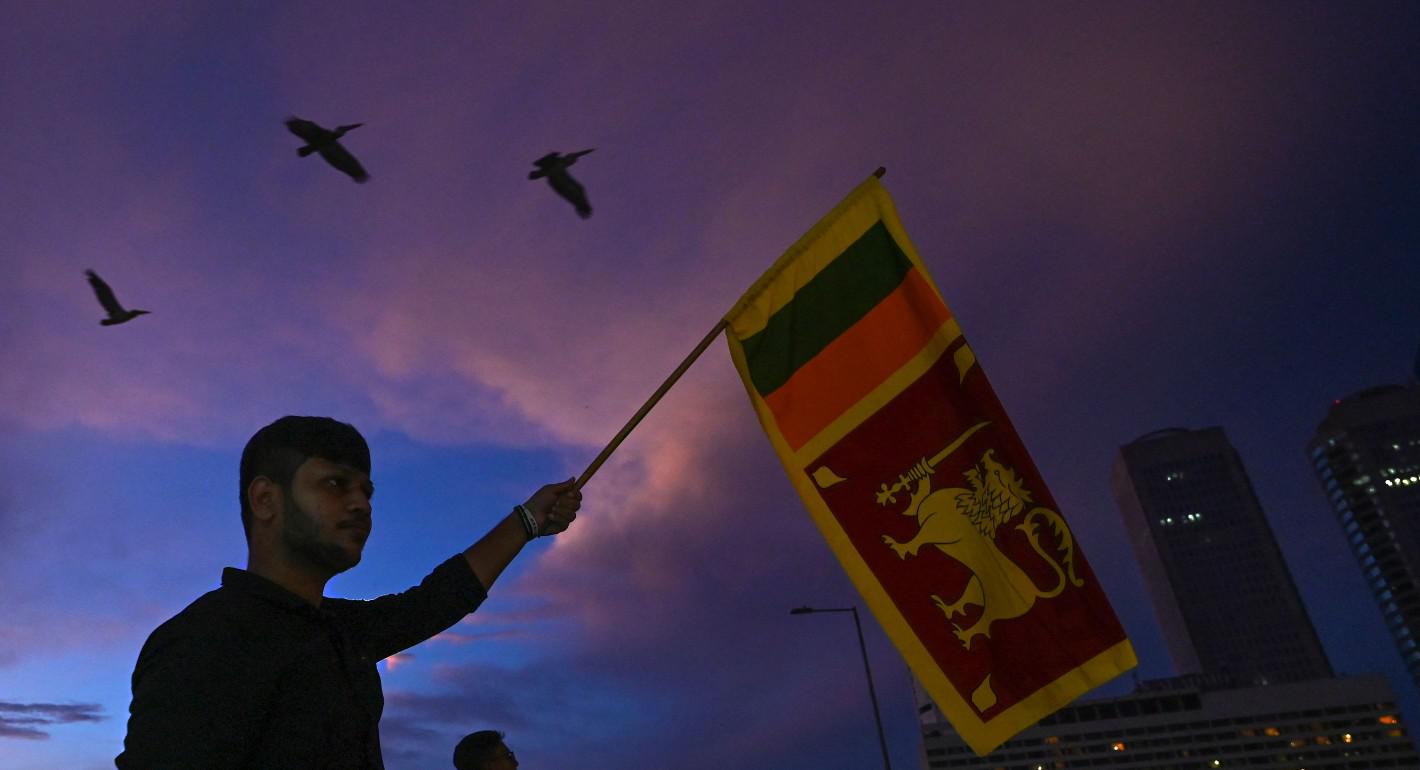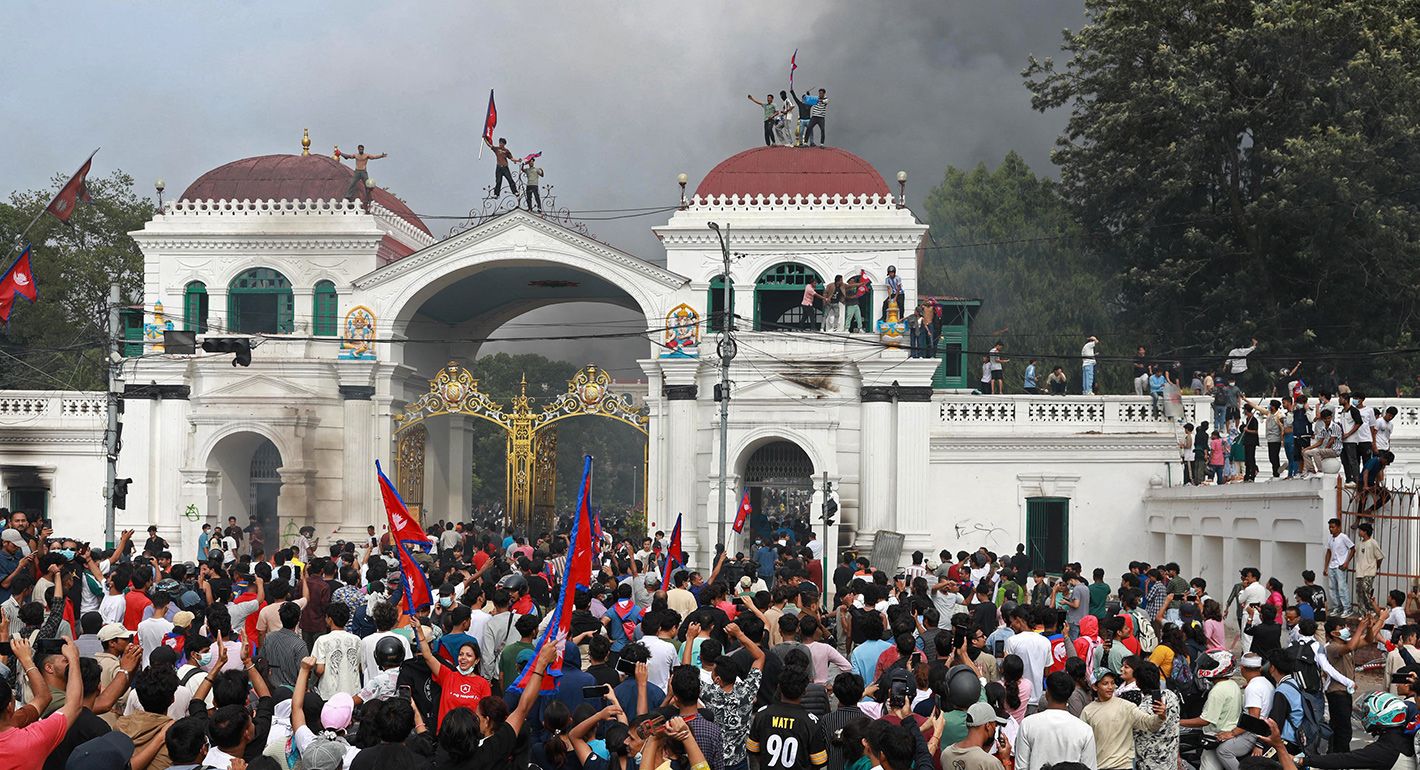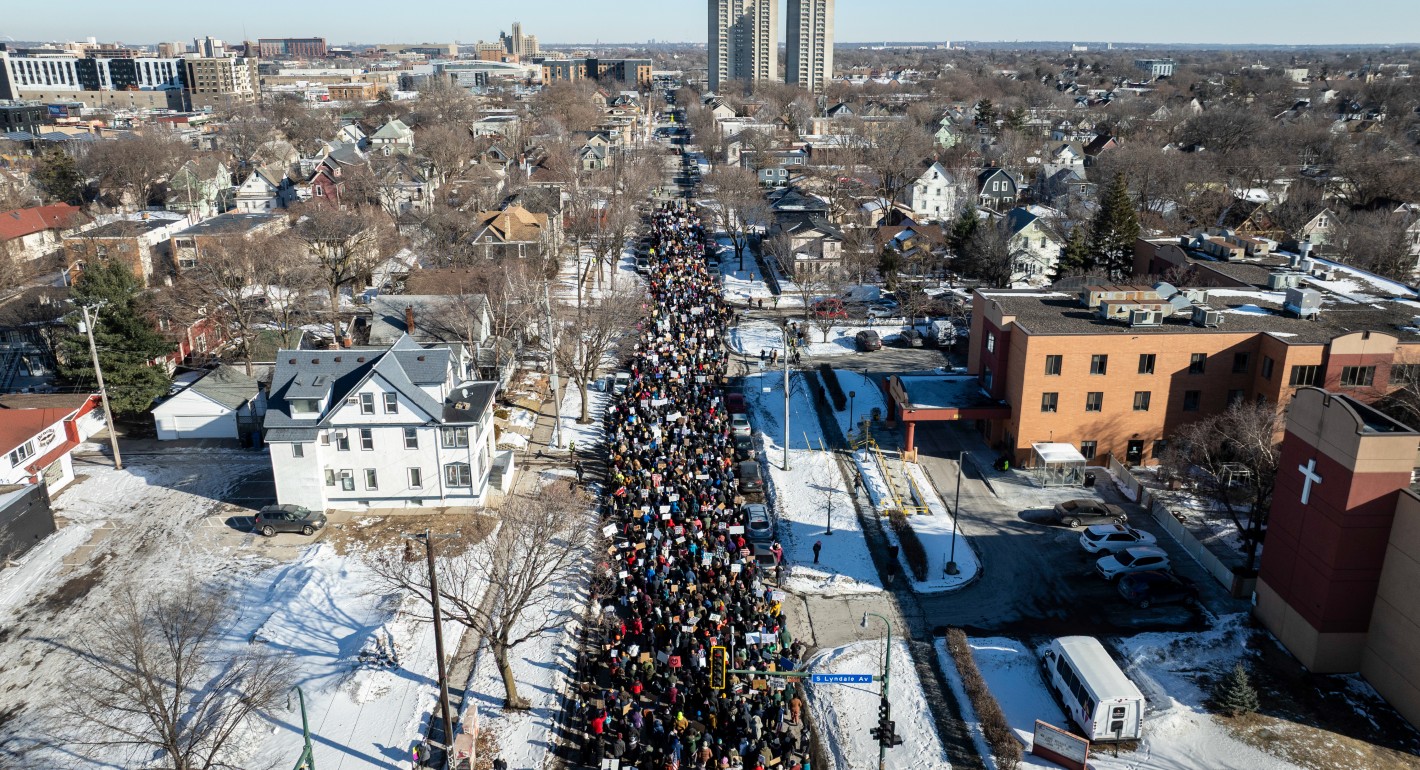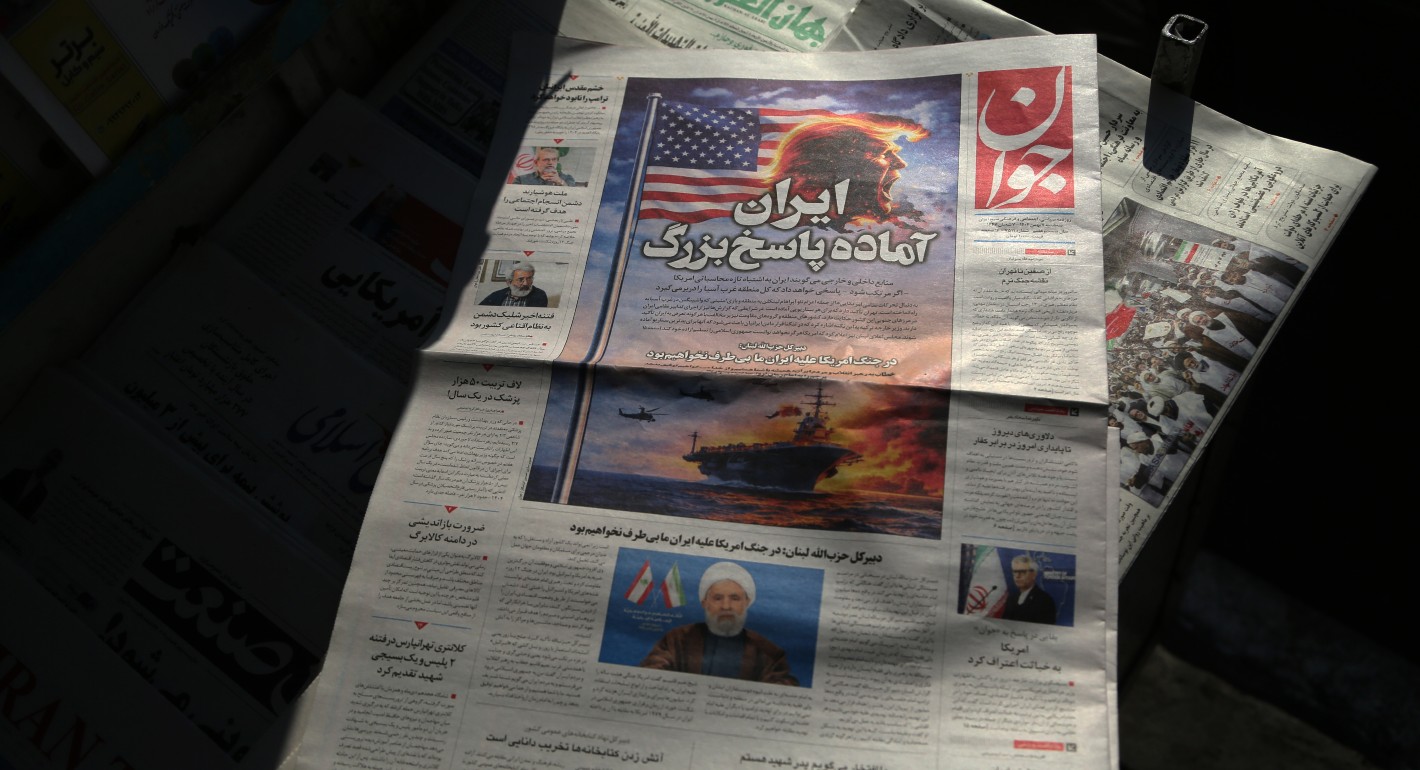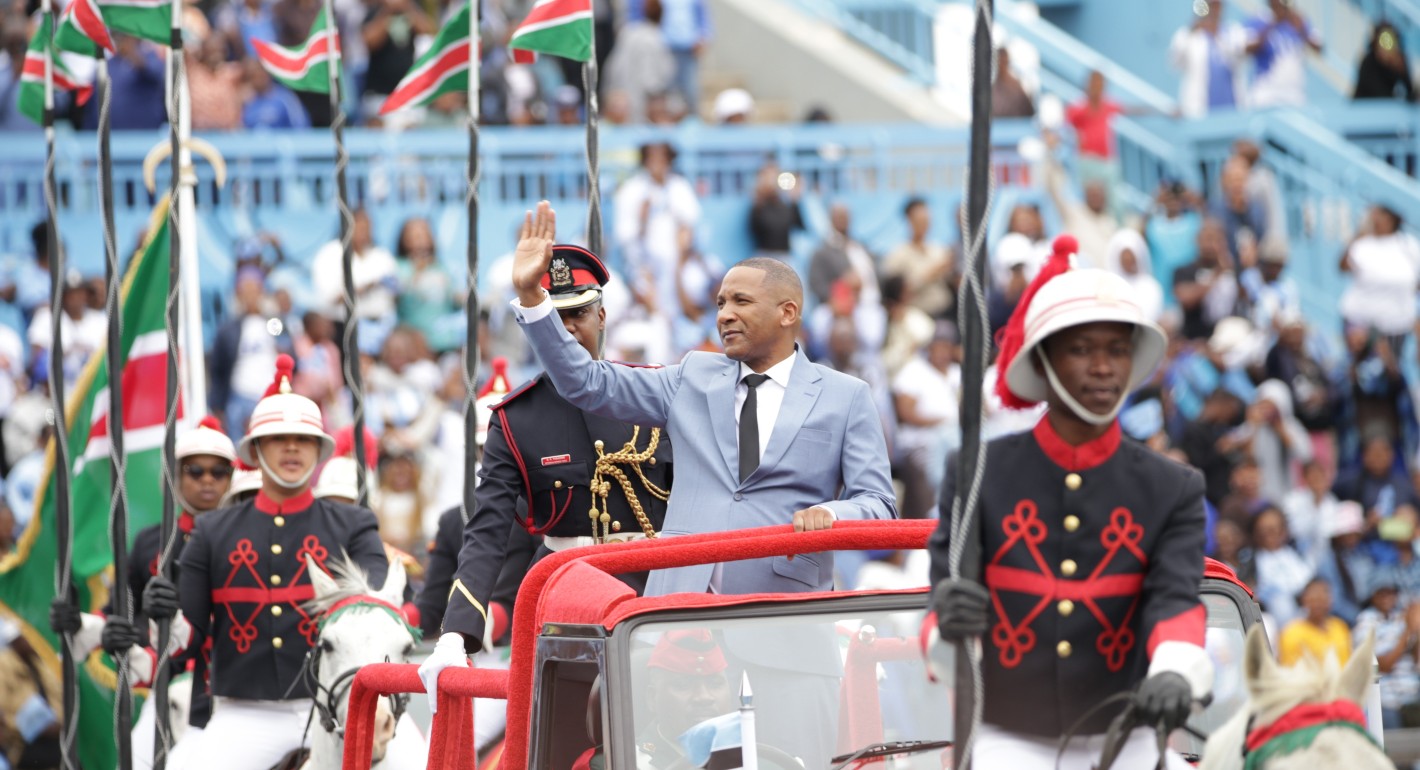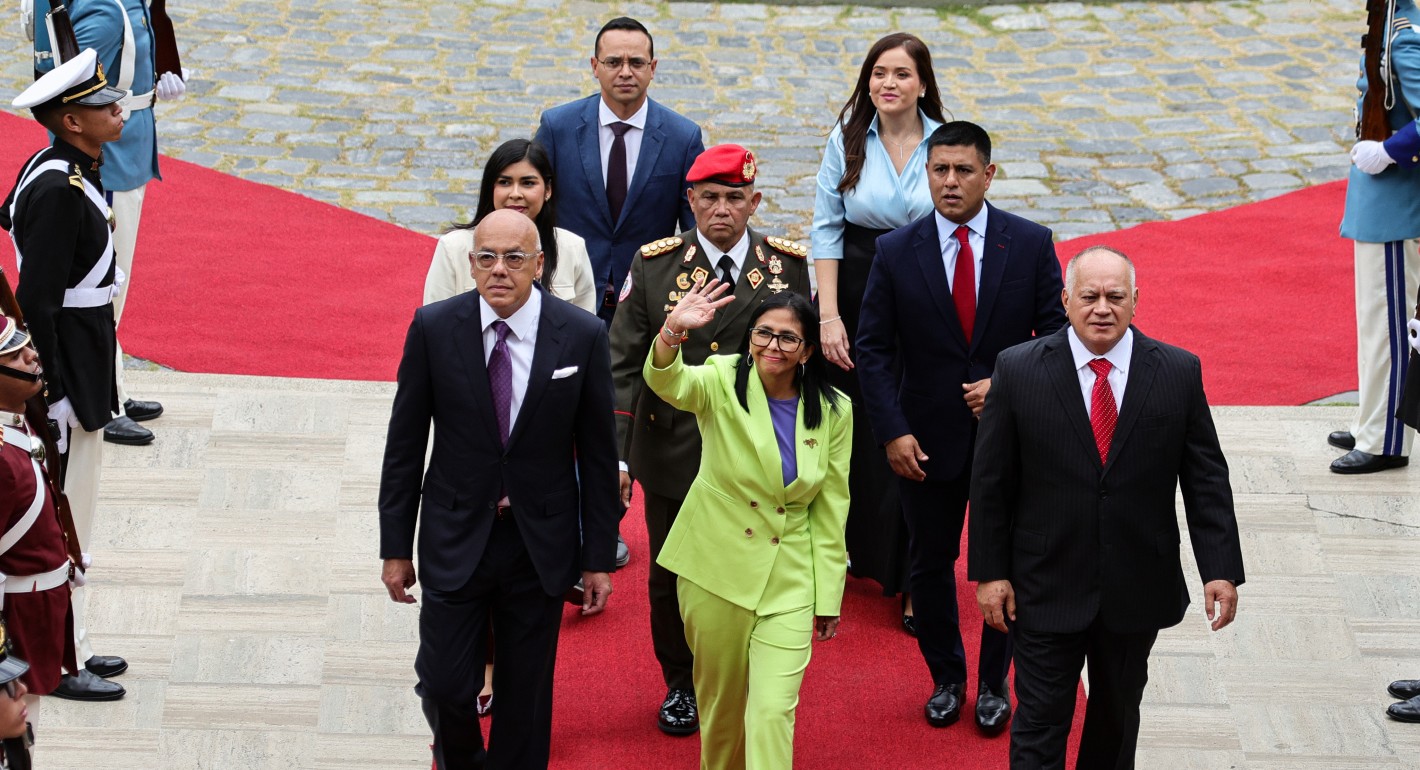Sri Lanka’s momentous protests toppled an unpopular leader and could be a sign of more change to come, though the path forward will not be easy.
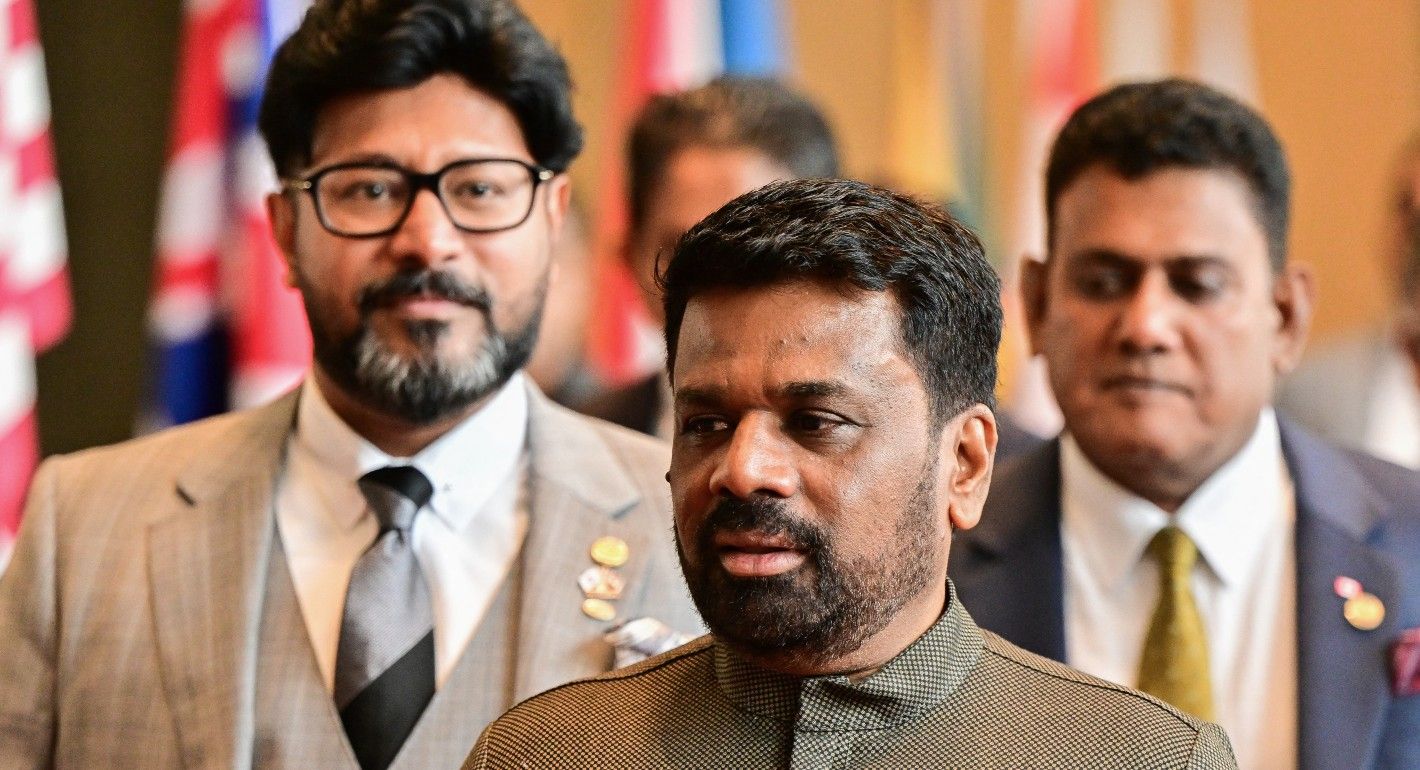
Sri Lankan President Anura Kumara Dissanayake (Photo by ISHARA S. KODIKARA/AFP via Getty Images)
Sri Lanka’s Elusive Democratic Renewal
One year after a historic election, Sri Lanka’s new left-leaning government faces mounting pressure to translate its reform promises into action.
The year 2024 was a watershed for Sri Lanka, with two national elections held in quick succession: a presidential poll in September and parliamentary elections in November. These were the first national contests conducted against the backdrop of a deep economic crisis and the mass citizen movement known as the Aragalaya (“Struggle”), which demanded sweeping political and economic change. Uniting Sri Lankans across class, ethnic, and religious lines, the movement marked a rare moment of collective action against corruption, nepotism, and economic mismanagement.
The National People’s Power (NPP) party, a left-leaning political alliance, captured the public’s imagination with its manifesto, which detailed lofty goals of abolishing the executive presidency, renegotiating Sri Lanka’s International Monetary Fund (IMF) program to provide fairer terms for the people, establishing a director of public prosecutions (DPP) to address delays in justice, delivering accountability for the 2019 Easter Sunday attacks, and enacting legal reforms such as the repeal of the Prevention of Terrorism Act (PTA), among others. The alliance’s leader, Anura Kumara Dissanayake, was elected president in September, and the NPP went on to win 159 of 225 parliamentary seats in November—securing a two-thirds majority under Sri Lanka’s proportional representation system.
In November’s parliamentary election, the NPP swept most electoral districts, including those in the conflict-affected Northern and Eastern provinces, becoming the first southern political alliance to do so. This reflected both voter apathy toward traditional Tamil parties and the fragmentation of votes that were previously with the Tamil parties. Taken together, these results signaled a broad rejection of the governance style associated with Sri Lanka’s entrenched political elites. Against the backdrop of the Aragalaya that saw Sri Lankans demand a new political culture, many voters opted for change, electing candidates who were new both to government and to Parliament. With the NPP government now marking one year in office, the promised transformation has not yet begun to take root.
From Crisis to Mandate
In recent years, Sri Lanka has experienced a turbulent political and economic trajectory. A decade after the end of its protracted civil war, the country suffered its worst postwar terror attack in 2019—the Easter Sunday bombings—which underscored the fragility of peace and reignited fears of ethnoreligious violence. That same year, Gotabaya Rajapaksa was elected executive president on a platform promising economic prosperity and national security. Riding a wave of populist rhetoric, Rajapaksa’s government made a series of fundamental economic missteps, including sweeping tax cuts that helped trigger the 2022 economic collapse.
The resulting Aragalaya protests triggered political upheaval and forced the resignation of the president, the prime minister, and others in government. Ranil Wickremesinghe was subsequently elected by Parliament to complete Rajapaksa’s presidential term and steer the country through its worst economic crisis since independence.
In 2023, Sri Lanka entered into its seventeenth IMF program, which mandated difficult fiscal and governance reforms alongside austerity measures. The unpopularity of these measures—combined with allegations of corruption and entrenched impunity—fueled public frustration and set the stage for regime change in the 2024 elections. Amid widespread economic hardship and disillusionment with political elites, the NPP’s message of clean government and social justice resonated widely.
The NPP pledged many democratic reforms, including drafting a new constitution; combating corruption; promoting clean government; and bolstering accountability, transparency, and productivity. On human rights and postwar reconciliation, the NPP promised legal reforms to combat discrimination and inequality, release political prisoners, return land to rightful owners, and establish a truth and reconciliation commission. These promises, coupled with Dissanayake’s charisma, raised hopes that Sri Lanka could finally break from its violent and authoritarian past and begin a genuine process of democratic transformation.
Unfinished Reforms
The NPP’s call for a new political culture resonated deeply with citizens who took part in the Aragalaya. A new political culture implied transparent, accountable governance with effective checks on power and safeguards against corruption. Notably, the NPP avoided divisive ethnoreligious rhetoric, pledging unity and peace among Sri Lanka’s diverse communities.
After the NPP’s first year in government, however, many of the promised democratic reforms remain unfulfilled. Major constitutional reforms—such as abolishing the executive presidency—have yet to commence. Legal reforms, including the repeal of the PTA and the Online Safety Act, are reportedly before government-appointed committees, though these processes lack transparency and clear timelines. The PTA has faced harsh criticism for permitting arbitrary detention and torture under the guise of counterterrorism, while rights groups have denounced the Online Safety Act for its potential to stifle free speech and criminalize dissent. Despite campaign promises to advance gender and sexual equality, the government has struggled to lead on these issues amid sustained opposition from religious and conservative groups.
The government’s limited progress is also evident in the areas of human rights, justice, and reconciliation. The new resolution on Sri Lanka adopted by the UN Human Rights Council in October 2025 underscores how much remains to be done, renewing the mandate of the Office of the High Commissioner for Human Rights to monitor Sri Lanka’s human rights situation and urging tangible progress on accountability and reconciliation. Thus far, there has been no accountability in several high-profile cases of extrajudicial killings and minimal progress in addressing the large caseload of enforced disappearances—an issue highlighted in the recent observations of the UN Committee on Enforced Disappearances. Renewed attention on mass graves, including exhumations in Chemmani and other sites, has reopened painful memories of the country’s bloody past and decades of failed attempts at truth-seeking and justice. In the conflict-affected north and east—where many voters defied precedent to back the NPP in 2024—tangible change remains elusive, and confidence-building measures are limited. Similarly, Dissanayake’s pledge to deliver justice for the Easter Sunday attacks has seen little visible progress.
Another central NPP promise was to tackle corruption by prosecuting alleged perpetrators and introducing transparent governance. One year on, progress has been limited: Only a handful of arrests and indictments have been filed, and procedural discrepancies in some investigations have raised concerns of selective justice. These shortcomings risk reinforcing the perception that the NPP—like its predecessors—has failed to confront entrenched impunity.
These shortcomings risk reinforcing the perception that the NPP—like its predecessors—has failed to confront entrenched impunity.
Despite the civil war ending in 2009, the root causes of conflict remain unresolved. The government has made no visible progress in addressing these concerns by way of a political settlement, nor has it taken steps to fully implement the Thirteenth Amendment to the Constitution, which was passed in 1987 and provides for limited devolution of power to the provinces. Provincial council elections, long overdue, have yet to be scheduled. Delays in advancing democratic reforms have prompted fears that Sri Lanka may again squander a rare opportunity for change.
A Narrow Window for Change
The government’s defenders argue that meaningful reform takes time and that expecting the NPP to deliver on all its campaign promises within a year is unrealistic. Yet Sri Lanka can ill afford complacency. Action is needed across multiple fronts—constitutional, political, governance, and socioeconomic. The IMF program concludes in 2027, debt repayments resume in 2028, and national elections are due in 2029. Once election pressures return, the political appetite for difficult structural changes will likely diminish. The government must therefore articulate a coherent communication strategy, establish clear timelines, and sequence its constitutional, legal, and economic reforms alongside targeted poverty-alleviation measures.
Despite its promise to renegotiate the IMF program, the NPP has continued on the economic pathway commenced by the Wickremesinghe regime. This has restored a measure of fiscal stability and provided continuity in the country’s economic recovery efforts. But the deal came with politically painful conditions—tax increases, subsidy cuts, and spending restraints—that hit ordinary Sri Lankans hardest. While the government has prioritized economic stabilization, this was not its sole mandate. Sustained economic growth must go hand in hand with political and governance reform. Yet, after one year in power, the NPP’s record on democratic reform is not encouraging.
Addressing the roots of Sri Lanka’s governance crisis requires strengthening checks and balances, reforming key institutions, and curbing executive overreach. Abolishing the executive presidency remains vital. Sri Lanka’s history with the office is replete with examples of abuse of power, and its recent economic crisis serves as a stark reminder of the risks posed by an all-powerful executive with few checks and limited accountability.
Addressing the roots of Sri Lanka’s governance crisis requires strengthening checks and balances, reforming key institutions, and curbing executive overreach.
Strengthening independent institutions and ensuring access to justice are equally critical. Establishing the NPP’s promised DPP would enable progress in emblematic cases and help restore faith in the rule of law. Properly resourced, independent institutions could prevent future abuses of power. Allocating resources—and obtaining international assistance—for exhumations and investigations into enforced disappearances would build trust with victims, survivors, and affected communities seeking answers and justice. Returning lands occupied by security forces to their rightful owners and reducing the military’s pervasive presence in the north and east would further bolster confidence in the government.
The NPP’s struggles to deliver on reforms are not unique; previous governments faced similar constraints. But the Aragalaya demonstrated that Sri Lankans have little patience for leaders who fail to deliver. Across South Asia—from Bangladesh to Nepal and beyond—recent mass mobilizations show a growing public intolerance for excuses and elite excesses. Sri Lankans share that sentiment, with a rich tradition of civic activism suggesting that the public will not remain passive indefinitely. The NPP, having benefited from Aragalaya, knows this well.
Nepal’s political landscape has undergone an extraordinary and rapid change. The recent protests revealed a force the traditional political parties had long ignored: the youth.
Dissanayake has less than four years remaining in his five-year term, and the path ahead will be difficult. The government’s second year must show genuine movement on structural and socioeconomic reforms and deliver tangible change beyond the rhetoric. This is the moment to act decisively—pushing through long-promised reforms before the political window closes. Only by doing so can Dissanayake and his NPP begin to make good on their 2024 promise of genuine democratic transformation.
Carnegie does not take institutional positions on public policy issues; the views represented herein are those of the author(s) and do not necessarily reflect the views of Carnegie, its staff, or its trustees.
More Work from Carnegie Endowment for International Peace
- Federal Accountability and the Power of the States in a Changing AmericaCommentary
What happens next can lessen the damage or compound it.
Mariano-Florentino (Tino) Cuéllar
- The United States Should Apply the Arab Spring’s Lessons to Its Iran ResponseCommentary
The uprisings showed that foreign military intervention rarely produced democratic breakthroughs.
Amr Hamzawy, Sarah Yerkes
- Africa’s Democratic Kaleidoscope: Trends to Watch in 2026Article
Supporters of democracy within and outside the continent should track these four patterns in the coming year.
Saskia Brechenmacher, Frances Z. Brown
- Taking the Pulse: Is It Time for Europe to Reengage With Belarus?Commentary
In return for a trade deal and the release of political prisoners, the United States has lifted sanctions on Belarus, breaking the previous Western policy consensus. Should Europeans follow suit, using their leverage to extract concessions from Lukashenko, or continue to isolate a key Kremlin ally?
Thomas de Waal, ed.
- Can Venezuela Move From Economic Stabilization to a Democratic Transition?Commentary
Venezuelans deserve to participate in collective decisionmaking and determine their own futures.
Jennifer McCoy
